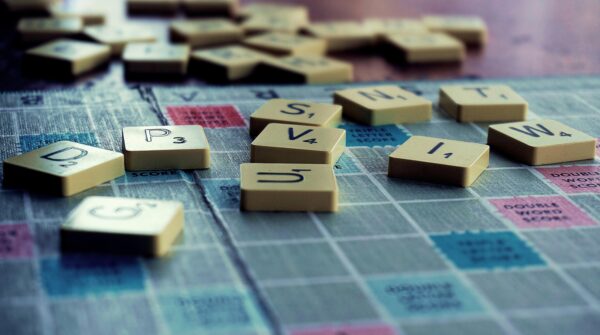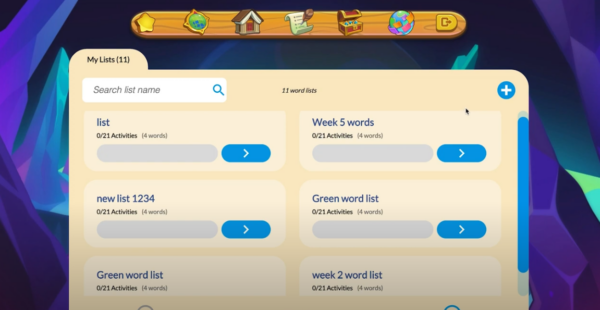Spelling can sometimes feel like a c-h-o-r-e for kids, but it doesn’t have to be! With a little creativity and the right strategies, you can transform spelling practice into an engaging and enjoyable activity. Here are some tips and ideas to make spelling fun.

Turn Spelling into a Game
Games are a great way to make learning interactive and enjoyable. Here are a few ideas:
- Spelling Bee: Organise a friendly competition where kids take turns spelling words. You can have small prizes for encouragement.
- Word Search: Create custom word search puzzles with the spelling words. This not only helps with spelling but also with word recognition.
- Scrabble: This classic board game is perfect for spelling practice. You can adjust the rules to fit the child’s level.
Use Technology to Your Advantage
There are numerous apps and online resources designed to make spelling practice fun. Apps like LiteracyPlanet, for instance, offer engaging activities and games that make spelling practice feel like gameplay.
These platforms often include a variety of interactive challenges, such as word puzzles, spelling bees, and customisable word lists, which keep kids interested and motivated. Additionally, many apps provide instant feedback and rewards, such as points, badges, and levels, to celebrate progress and maintain enthusiasm. With colourful graphics, captivating storylines, and the ability to track improvement over time, these digital tools transform traditional spelling exercises into an exciting adventure.
By incorporating technology into spelling practice, parents and educators can offer children a dynamic and enjoyable way to enhance their spelling skills.
Incorporate Arts and Crafts
Get creative with spelling by incorporating arts and crafts:
- Spelling Art: Have kids draw pictures that represent their spelling words. They can then write the word next to the drawing.
- Clay Letters: Use modeling clay to form letters and spell out words. This hands-on activity can make spelling more memorable.

Interactive Storytelling
Encourage kids to use their spelling words in stories:
- Story Creation: Ask them to write short stories or sentences using their spelling words. This not only helps with spelling but also with understanding word usage.
- Story Cubes: Use dice with different words or pictures. Kids can roll the dice and create a story incorporating the words or images they land on.
Engage with Rhymes and Songs
Music and rhyming can make spelling more enjoyable and easier to remember:
- Spelling Songs: Create simple songs or chants using the spelling words. Singing the words can help reinforce their spelling. Bonus points if you can use your students’ favourite song!
- Rhyming Games: Challenge kids to come up with rhymes for their spelling words. This helps with phonetic awareness and makes the activity fun.
Personalised Spelling Lists
Tailor the spelling lists to the child’s interests:
- Interest-Based Words: Include words related to their hobbies or favourite topics. If a child loves dinosaurs, include words like “triceratops” and “fossil.” With LiteracyPlanet’s Custom Word List you can create as many word lists as you need, from vocabulary lists based on novel or theme studies to lists on any subject, category or disciplinary language your students need to learn.
- Name Practice: Use names of family members, friends, or favourite characters from books and shows.

Incorporate Physical Activity
By adding a bit of physical activity to spelling exercises, children get to engage both their bodies and minds at the same time, making it easier and more fun to remember and understand the words they’re learning.
- Spelling Relay: Set up a relay race where kids have to spell a word correctly before passing the baton.
- Jump Rope Spelling: Have kids spell out words while jumping rope. Each jump can represent a letter.
Use Positive Reinforcement
Encouragement and rewards can work wonders in making spelling an enjoyable experience for children. When children feel supported and recognised for their efforts, they are more likely to stay motivated and engaged in their learning.
- Sticker Charts: Create a chart where kids can earn stickers for each word they spell correctly.
- Praise and Rewards: Offer praise and small rewards for effort and improvement. Positive reinforcement builds confidence and motivation.
Simple gestures like praise and high-fives can boost their confidence, while fun rewards like stickers, badges, or extra playtime can add an element of excitement to their spelling practice.
Making spelling fun for kids is all about creativity and engagement. By turning spelling practice into an enjoyable activity through games, technology, arts and crafts, storytelling, music, personalised lists, physical activity, and positive reinforcement, you can help kids develop strong spelling skills while having a great time.
Remember, the goal is to make learning feel like play, so keep the atmosphere light and encouraging. Happy spelling!
LiteracyPlanet has a membership plan for everyone! And did you know? Every plan starts with a free 30-day Pro trial – What you do next is up to you!
Ready to take your students’ literacy skills to the next level?






